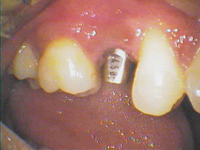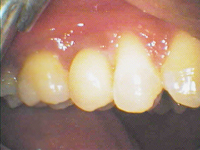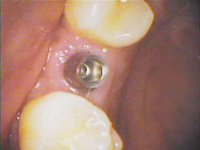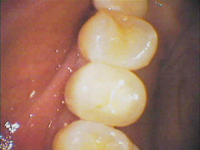Retzepi is a registered specialist in Periodontics and honorary Clinical Lecturer in Periodontology at the world-renowned UCL Eastman Dental Institute. She is the recipient of the most prestigious international awards in Dental Implantology, namely the 2009 European Association of Osseointegration Research Award and the 2010 Andre Schroeder Research Prize. She holds the Certificate of Clinical Specialisation in Periodontics and Master of Science in Oral Biology with distinction from the University of Athens, following completion of a three-year full time specialist training programme. She has further completed a clinical fellowship programme at the Department of Periodontology and Fixed Prosthodontics, University of Bern, Switzerland.
Maria received her Doctor of Philosophy (PhD) degree from the University College London Eastman Dental Institute for her innovative research on the effect of systemic diseases on osseointegration of dental implants and on bone regeneration. She is a Fellow of the International Team of Implantology and the Higher Education Academy and she is a member of the European Association of Osseointegration and the European Federation of Periodontology. She has several publications in international journals, serves as referee for the Journal of Clinical Periodontology and the Clinical Oral Implants Research and has lectured extensively to professional bodies on topics related to periodontology and dental implantology.
Maria joined the Smiles @ The Preventive Dental Practice in 2014 as a Specialist in Periodontics and welcomes referrals for consultation and treatment of periodontal and peri-implant diseases, including surgical and regenerative treatment, as well as periodontal plastic and cosmetic procedures.
 Preventive Dental can assist with dental implants for all needs and requirements. We have a specialist,
Preventive Dental can assist with dental implants for all needs and requirements. We have a specialist, 
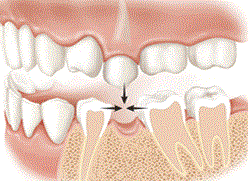 The aesthetics of the tooth opposing the space are compromised, take a look at the line of the gum margin in the image here, notice how it is lower than it would have been. The same effect would also happen if an upper tooth was removed, the lower tooth opposing it would drift upwards.
The aesthetics of the tooth opposing the space are compromised, take a look at the line of the gum margin in the image here, notice how it is lower than it would have been. The same effect would also happen if an upper tooth was removed, the lower tooth opposing it would drift upwards.